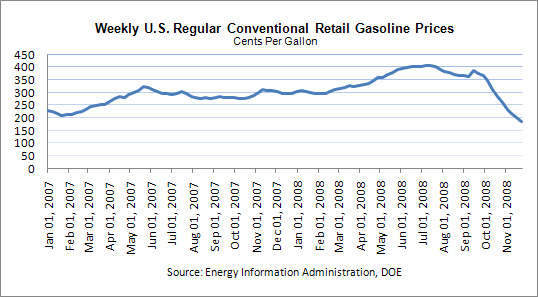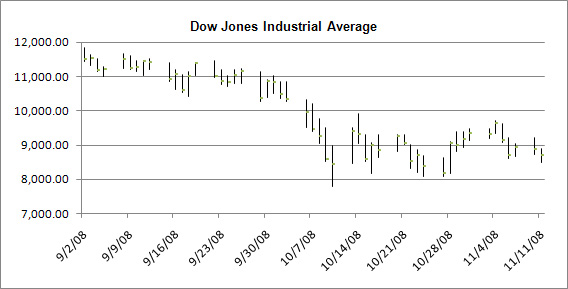
A
presidential election campaign follows a set of familiar steps, from
the
early maneuvering and testing-the-waters activities in the pre-campaign
period to frenetic last-ditch efforts of the party nominees in the
fall.
Each presidential campaign occurs in, and is shaped by, a unique
historical
context.
Considering The Field of Play
Beyond the temperaments,
leadership abilities, and characters of the candidates, one must also
consider the context, or playing
field on which a campaign is fought, for this sets broad bounds within
which the
candidates and their organizations must operate. The historical context
in
which a campaign is waged impacts its substance, pushing
various
domestic and foreign issues into greater or lesser prominence. Events, social
and
economic conditions, cultural tendencies, technology, and rules and
laws
governing the election process all combine to create a political
landscape
which may favor one or another of the candidates.
In "The Keys to the
White
House" Allan J. Lichtman, professor of history at The American
University
in Washington, D.C., identifies thirteen factors ("keys") which he
argues
determine whether the incumbent party will win or lose the White
House. Examples of the keys include the balance of seats in the
House of Representatives, whether there is a contest for the incumbent
party
nomination,
real per capita economic growth, and whether there has been a major
military
or foreign-policy success.
There are other
contextual
factors which merit consideration. For example, the
technologies
a campaign can use to reach voters are constantly developing. In
the past, the whistlestop tour may have been the best way to
communicate
with voters; more recently the 30-second television spot has been the
preferred
currency, but the Internet is becoming increasingly important.
The number
and
type of news outlets, supplemented by bloggers, has exploded. An
Abraham Lincoln or a Theodore Roosevelt-type candidate might not be
electable
in such a communications environment.
To take another
example,
the
conduct of federal elections is governed by rules set out in Title 11
of
the Code of Federal Regulations (Federal Election Commission), state
laws,
and rules of the political parties. These myriad rules have
evolved
over time and the net outcome is a system that seems more geared to
lining
the pockets of consultants than educating the voters. It is long,
expensive and often falls short in producing substantive discussion of
issues. The process for choosing the party nominees places a
premium
not on ideas or experience, but on the ability to raise money in the
year
before the election. Thoughtful presidential prospects may choose
to self-select out rather than enduring the grind. Former House
Speaker
Newt Gingrich decried a lack of seriousnes in the political process
during
a "Lincoln at Cooper Union" dialogue held on Feb. 28, 2007. "The
process is decaying at a level that is bizarre, and it's a mutual
synergistic
decay between candidates, consultants and the news media," Gingrich
said. (1)
The Clinton-Lewinsky
scandal and the battle over Florida following the 2000 presidential
campaign bolstered the
notion
that America has become a polarized nation, divided into "red" and
"blue." There was among many a yearning for an end to partisan
bickering and gridlock. In 2000 then Gov. George W.
Bush campaigned as a "uniter, not a divider." Again in 2008 there
was an opening for a candidate who might be able transcend
partisan politics and
bring
the country together. (2) Unity'08,
an effort
to
elect a bipartisan ticket to the White House in 2008, started in May
2006, but folded in January 2008. In another example of the
bipartisan
thrust, in March 2007
former
Senators Baker, Daschle, Dole, and Mitchell launched the Bipartisan
Policy Center. In recent decades, voters increasingly are chosing to
register as independents or non-affiliated. Third party and independent
candidates might seem likely beneficiaries of this state of affairs,
but they face numerous obstacles and the two-party system remains a
fixture of American politics.
2008
The 2006
mid-term elections set the stage for 2008. The messy
situation
in Iraq, Bush's sagging job approval ratings and perhaps some fatigue
after
six years of his administration, economic unease, high gas prices, and
a few scandals in the mix caused Republicans to lose control of both
the
House and the Senate.
Republicans
Lose
Their Advantage
|
Nov.
2006 |
|
|
|
Jan.
2007 |
|
|
| U.S. Senate |
44D |
55R |
1I |
|
50D |
49R |
1I |
| U.S. House |
201D |
229R |
1I, 4v |
|
234D |
201R |
|
| Governorships |
22D |
28R |
|
|
28D |
22R |
|
| State
Legislatures 1, 2 |
47D |
49R |
2 tied + NE |
|
57D |
41R |
1 tied + NE |
House vacancies before Nov. 2006 elections: TX-22 (DeLay
-R), NJ-13 (Menendez -D). FL-16 (Foley -R), and OH-18 (Ney -R).
Legislatures: As of
4/17/06
3,663 Democrats, 3,643 Republicans, 23 Indep./Other and 4
vacancies.
Montana House and Iowa Senate tied. (Source NCSL).
Iraq and the "war on
terror" were significant issues early in the 2008 campaign, debated by
Democrats in the primaries and used to effect by Sen. John McCain in
his campaign for the Republican nomination. There had not been
any attacks on the United States since Sept. 11, but the war in Iraq,
begun in March 2003, continued into its fifth year with costs and
casualties seemingly far disproportionate to any benefits gained.
Many social and
economic issues also loomed. Former Speaker Gingrich, during
the Feb. 2007 "Lincoln at
Cooper
Union" dialogue stated, "I believe this country today faces more
parallel
challenges simultaneously than at any time since the 1850s." ("And,"
he added, "I believe there is a grave danger that our political system
will not be capable of solving these problems before they take our
society
apart in ways that are very destructive.") America continued to run
up large trade
deficits month after month. The loss of manufacturing jobs
was
a particular concern as is the low household saving rate and retirement
security. Health care costs continued to spiral, and millions
were without health care insurance. Difficult
choices
loomed on Social Security and Medicare; the Congressional
Budget Office
projected
that federal spending on Social Security, Medicare, and Medicaid
would
double by 2030. (2).
Sizable federal budget deficits
produced a public
debt that rose from $5.7 trillion when George W. Bush was sworn in
the first time to $7.6 trillion at the time of his second Inauguration
to $9.2 trillion at the time of the Iowa caucuses in Jan. 2008.
Hurricane Katrina revealed serious deficiencies in
government
response. The emotional issue of illegal immigration remained
unresolved. Global warming received
considerable attention due in large part to the efforts of former
Vice President Al Gore. Given this accumulation of issues, it is not
surprising that President
George W. Bush's job approval ratings hovered around 30-percent
throughout the election year, creating a heavy burden for whichever
candidate gained the
Republican nomination.
Any one of the above issues could have moved to the fore in
public discussion. One issue that particularly hit home was the price of
gasoline. The cost of a gallon of regular gasoline crossed the
$2.00 level in March 2005. By the time of the Iowa caucuses in
Jan. 2008 the price of a gallon of regular stood at about $3.08.
From March to there was a steady rise to a peak of about
$4.05 in mid-July
2008.

But it was the collapse
of the housing bubble and the myriad ramifications of that collapse
that ultimately had the most telling effect on the outcome of the 2008
election. As the Office of Federal Housing Enterprise Oversight
noted in its April 15, 2008 Report
to Congress, "The weakness in the housing sector that began in 2006
got much worse in 2007. While housing markets had been a source
of strength for the economy during the economic expansion that began in
2001, by year-end 2007 housing threatened to lead the economy into
recession." Problems with the housing sector spread to financial
markets. A harbinger of the difficulties to come occurred in March
2008 when Bear Stearns collapsed and the Federal Reserve intervened. By Sept.
2008 a
full-scale economic crisis had developed, dominating
the closing weeks of the election.
On
Sept. 7 the federal government placed
mortgage giants Fannie Mae and Freddie Mac into conservatorship. Such was the seriousness of
the situation that, even in the heat of the campaign, Congress managed
to pass the Emergency Economic
Stabilization Act of 2008, a $700 billion financial
rescue/bailout bill, which President Bush signed into law on Oct.
3. Major fluctuations
roiled financial markets. For example, the Dow Jones
Industrial Average lost 777.68 points (6.98%) on Sept. 29, 678.91
points (7.33%) on
Oct. 9, and 733.08 points (7.87%) on Oct. 15, while gaining 936.42
points (11.08%) on
Oct. 13 and 889.35 points (10.88%) on Oct. 28; this volatility extended
into the
transition period.

Past Elections
-The
2004 election in
essence
was about national security. The terrorist attacks on September
11,
2001 had burned into the national psyche. Within a month anthrax
letters spread further anxiety to the extent that people were afraid to
open their mail. Increased security led to a new set of realities
including long lines at airports and unsightly barricades around some
public
buildings. President George W. Bush's popularity soared with the
successful prosecution of the war in Afghanistan; his job approval
reached
92 percent in October 2001 and was still at 83 percent in late January
2002. The focus shifted to Iraq, and by the summer months of 2002
there was much speculation in the press and political circles about a
possible
war to force a "regime change" in Iraq, and about what form such a war
would take and when it would come. On March 19, 2003, having
failed
to gain the backing of the U.N. Security Council, the United States,
backed
by a "coalition of the willing," launched a strike on a meeting of key
leaders in Baghdad, thereby beginning the war with Iraq.
Democrats
selected Sen. John Kerry as their nominee in significant part because
he
was a Vietnam veteran and was thus seen as someone who could speak with
authority on national security.
-The event that most
colored
the political landscape in the 2000 cycle was the Clinton-Lewinsky
scandal.
This sordid story dominated the news in the latter part of 1998,
culminating
in the U.S. Senate sitting as a Court of Impeachment in January
1999.
President Clinton survived, but the scandal set up a strong
undercurrent
which continued to resonate throughout the election cycle, creating a
very
awkward situation for Vice President Gore.
-In 1996, the Cold War
had
receded into people's memories, and the campaign was fought on domestic
issues. The debate over the Clinton administration's health care
proposal, the Republicans' gain of control of the House in the 1994
mid-term
elections, and the unprecedented shutdowns of the federal government
all
set the stage for the 1996 campaign.
-The context of the
1992 campaign can best be summed up in the slogan, "It's the economy,
stupid."
Conclusion
The issue terrain shifted markedly during the course of the 2008
campaign. First it appeared that Iraq might be the dominant
issue, then energy. Meanwhile, there were many grounds for
concern about the American economy lurking in the background. In
Sept. 2008 major
cracks appeared in the financial system and the economy moved squarely to
the front and center of the
debate.
Notes
1. More from Gingrich:
"...we
live in an age of webcasts, which we're doing tonight, we live in an
age
of television, 24-hour radio, dramatic ability to reach the country
immediately,
and the campaigns instead of getting shorter have gotten longer.
And there's a practical reason. They're consultant
full-employment
processes. The first delegates are filed at the end of November
and
chosen in January and February. There's no reason you have to be
out doing all this junk, except candidates turn to consultants who say
hire me now. To hire me now you have to raise money, to raise
money
you have to hire a finance person, now you have to pay both me and the
finance person so you better spend all your time going out and raising
money, which is a totally banal process, the end of which means you
have
candidates who are totally exhausted, have no thoughts, but know an
awful
lot of rich people well."
2. Coincidentally the 2008
campaign saw a number of firsts. On the Democratic side a woman,
Sen.
Hillary Rodham Clinton, an African-American, Sen. Barack Obama, and a
Latino, Gov. Bill
Richardson, waged credible campaigns, while a Morman, former Gov. Mitt
Romney, strongly contested the Republican nomination. Might one
of
these candidates be able to take advantage of the political terrain?
General
Office of Federal Housing Enterprise
Oversight
Retail
Historical Gasoline Prices (Energy Information Administration)
2006
Statistical Abstract of the United States (U.S. Census Bureau)
Economic
Briefing Room (U.S. Census Bureau)
Economy at a Glance (Bureau of Labor
Statistics)
Overview of the Economy
(Bureau of Economic Analysis)
Consumer Confidence Index (The
Conference Board, Inc.)
National
Debt, Interest
on the National Debt (Bureau of Public Debt--U.S. Dept. of the Treasury)
U.S. Census Bureau
Population Clock
"Fact Sheet
on the True Size of Government" (The Brookings Institution-2003)
Other
C-SPAN's American
Presidents:
Life Portraits
Why Not A Woman?
Allan
J. Lichtman (2004 article
on The Keys to the White House) (brief June 2006 interview)
 |
 |
|
WALL STREET - OCTOBER 2008 |
NEXT
|
|
| Copyright
© 2006, 2007, 2008 Eric M. Appleman/Democracy in Action |

|




